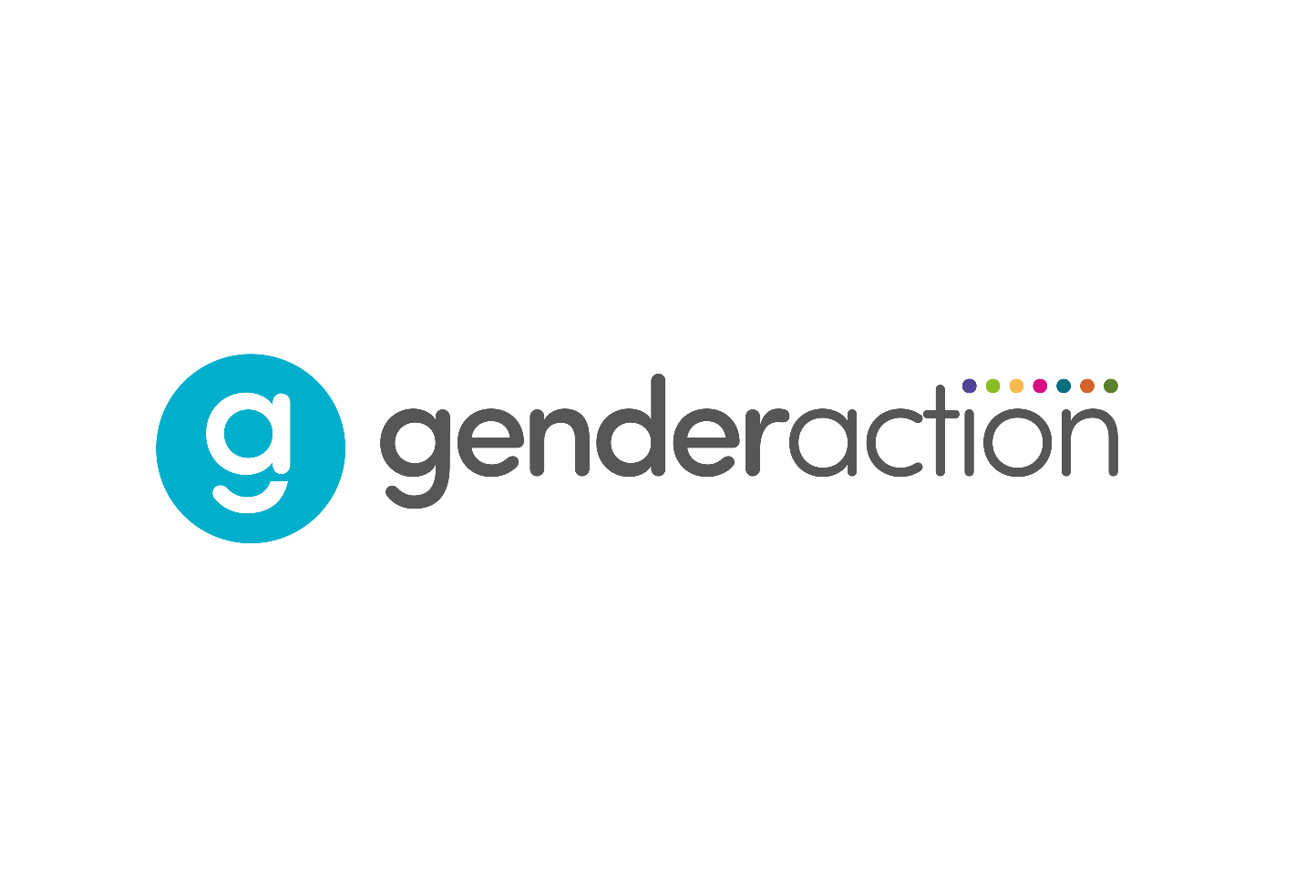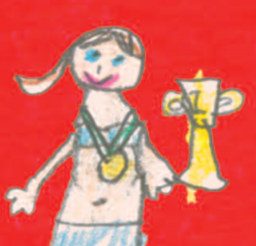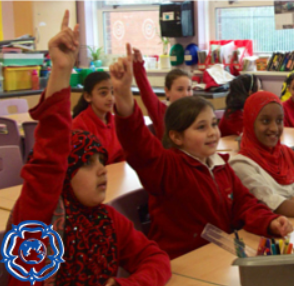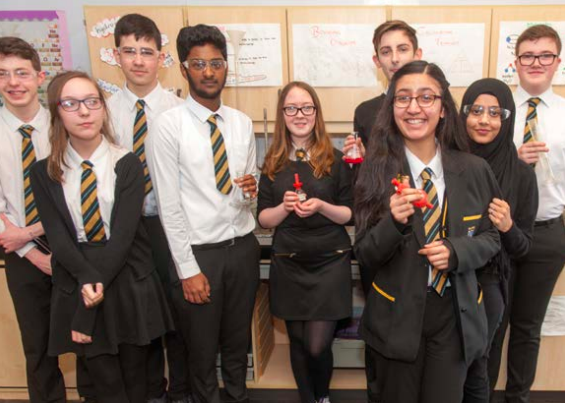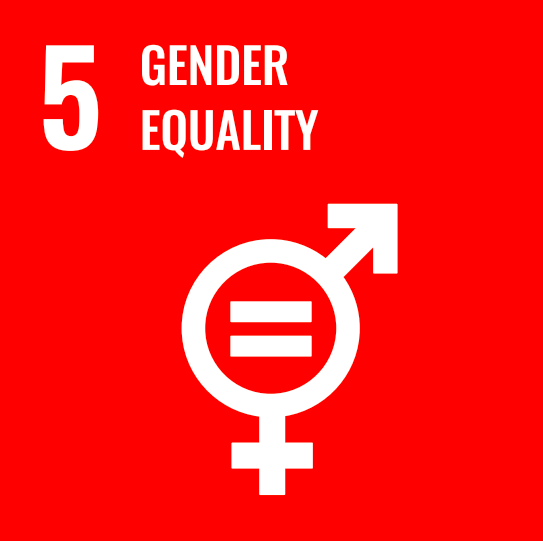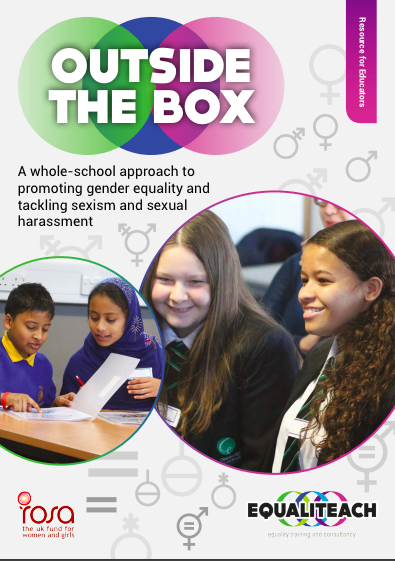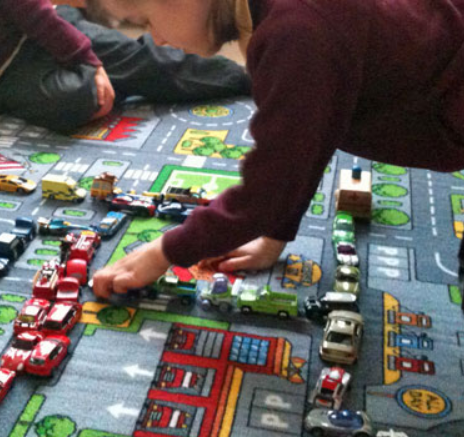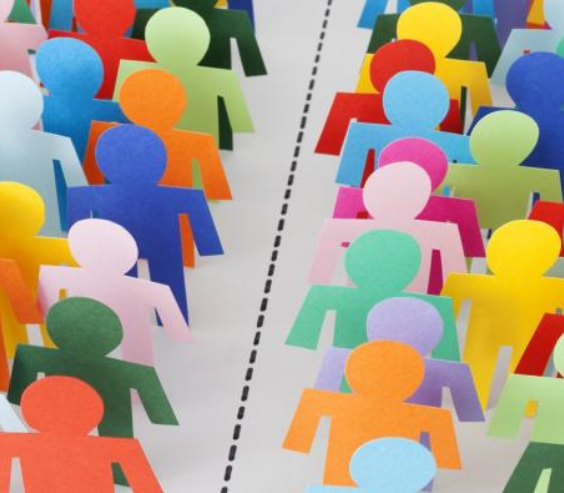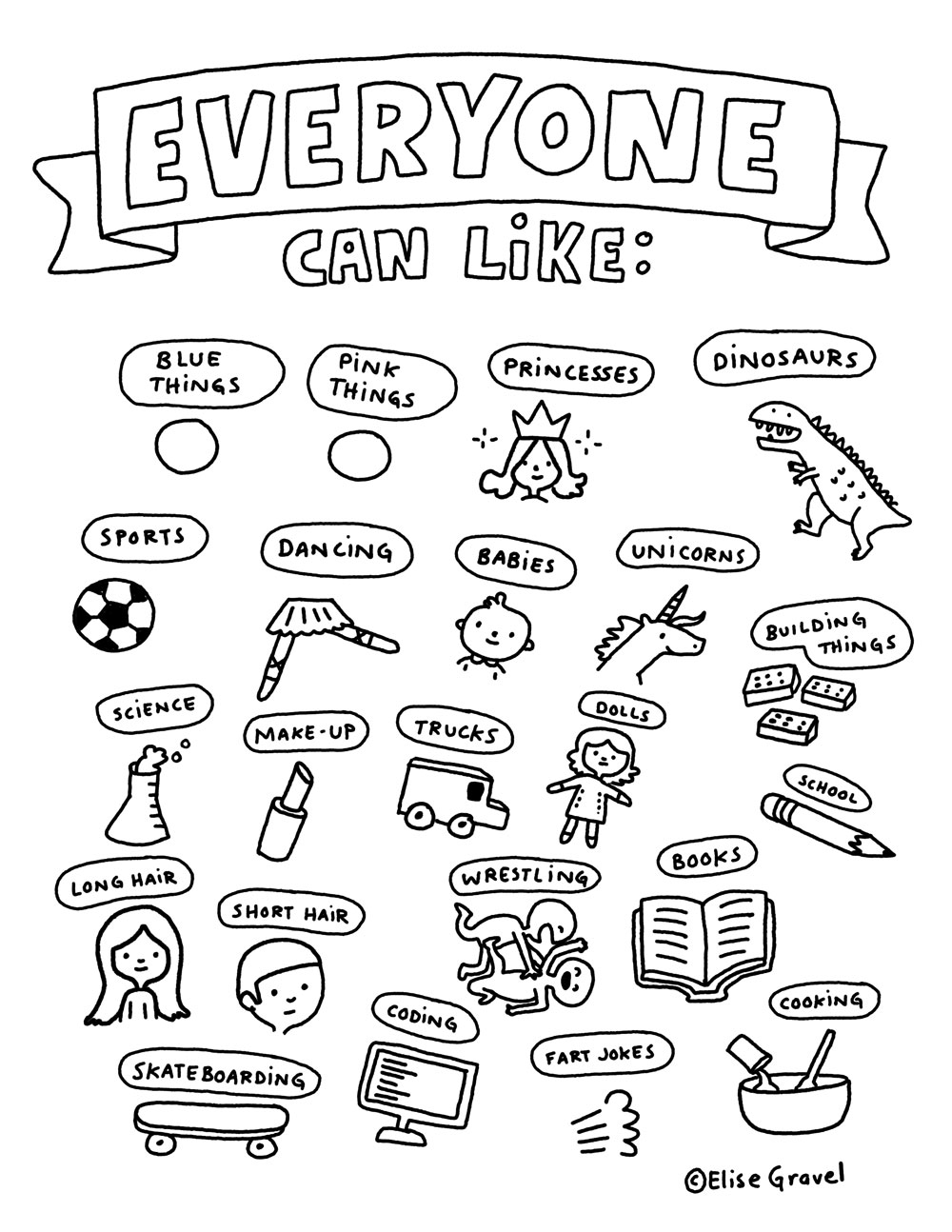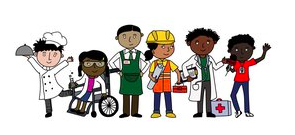Resource Library
A collection of resources, reports and guidance from across the internet, to help inspire and inform your own Gender Action projects.
For Gender Action specific resources, please visit here.
Reports
Opening Doors: A guide to good practice in countering gender stereotyping in schools
Institute of Physics
Based on discussions and observations from ten schools in England, we give examples of barriers that schools face, case studies and examples of good practice.
The guide highlights issues that many schools deal with on a daily basis and presents suggestions for schools facing similar barriers, including nine essential features of a school that is actively addressing gender equity.
DRAWING THE FUTURE: Exploring the career aspirations of primary school children from around the world
Education and Employers, Tes, UCL Institute of Education, the National Association of Head Teachers (NAHT) and the Organisation for Economic Cooperation and Development Education and Skills (OECD)
This international survey offers an opportunity to explore who primary-age children ideally want to become, and what shapes (and often limits) their career aspirations and dreams for the future.
These studies have emphasised that children’s aspirations are often shaped, moulded and restricted by gender stereotyping, socio-economic background and, importantly, who they know. These factors can, and do, go on to influence the academic effort children exert in certain lessons, the subjects they choose to study and the jobs they end up pursuing.
Gender stereotypes and their effects on young people
Institute of Physics
What are gender stereotypes?
A gender stereotype is a widely held belief or generalisation about the behaviours and characteristics attributed to women and men. Females are often portrayed as being emotional, caring and in need of protection. Males are often characterised as being rational, career driven and strong. These assumptions can be negative (e.g. women are irrational, men are insensitive) or seemingly benign (e.g. women are nurturing, men are leaders). However, all stereotyping can be limiting.
Gender Stereotypes: an introduction for practitioners in schools and early learning centres
Institute of Physics, Skills Development Scotland and Education Scotland
This guide provides a brief introduction to gender stereotypes and their impact through unconscious bias and stereotype threat. It should be read in conjunction with the accompanying action guides, which provide practical steps for practitioners to address these issues in the early years, primary and secondary schools.
Girls’ Attitudes Survey 2023
Girlguiding UK
To celebrate the 15th anniversary of the Girls’ Attitudes Survey. For 15 years, Girlguiding has asked girls and young women aged 7 to 21, within and outside Girlguiding, about their views on subjects ranging from education to their personal safety and wellbeing.
Improving Gender Balance: reflections on the impact of interventions in schools
Institute of Physics
For more than 30 years only a fifth of those taking A-level physics have been girls. Over that period every effort to increase uptake has failed to have a breakthrough national impact. This guide details pilot projects that have broken through in partner schools.
The Good Childhood Report 2023
The Children’s Society
Children are struggling with their identity and alarming numbers are self-harming.
Pressure to fit in is making children unhappy – from how they look, to their sexuality, to how boys and girls must behave. Twice as many girls are self-harming as boys, and almost half of children attracted to the same or both genders self-harm.
Gender Stereotypes in Early Childhood: A Literature Review
The Fawcett Society
This report includes an initial sweep of a diverse body of literature; a review of research that exists relating to learning gender, education in early childhood, parenting, and retail; and evidence relating to the effects of gender stereotyping
Gender and Education – Mythbusters
Department for Children, Schools and Families
This resource is designed for use by educators from all phases and stages of schooling. Its purpose is to identify and dispel some of the current and unhelpful myths about gender and education and to counter them with an evidence-based rationale. It could be used in a variety of ways and contexts but it might be most productively used as a vehicle for opening up dialogue about gender issues in education with teachers and other school staff, trainees and pupils.
Challenging gender stereotypes in the early years: the power of parents
Our Watch
This report, written in Australia, focuses on the potential for parents of young children to challenge restrictive gender stereotypes and roles, a key driver of violence against women. Parents of young children can play a powerful role in helping to drive the generational cultural change required to see an end to violence against women.
Improving Gender Balance: Literature Review
Education Scotland
The Improving Gender Balance and Equalities programme is a research-informed programme. The aim of this literature review is to provide an overview of relevant theory and research in this area, with points for professional discussion and ideas for practice. To ensure the original authors’ voices are reflected as accurately as possible, paraphrasing has been kept to a minimum. This review focuses on three areas: 1) evidence of sex differences in education; 2) the influence of gender stereotypes and unconscious bias; 3) implications for practice.
The Gender at Work Framework
Gender At Work
The Framework can be used by change agents in both organizations and communities to uncover opportunities and barriers to gender equality, to map a strategy for change and to guide evaluative efforts to mark progress.
Creating an inclusive school environment
British Council
This book represents the British Council’s approach to inclusion, and includes a variety of case studies and examples from around the world
Play and Gender
Play Wales/ Chwarae Cymru
This information sheet aimed at playworkers and other practitioners with a responsibility for children’s play explores assumptions around gender differences between how boys and girls play and how we can support children to experience the broadest play opportunities in our settings. It also features 15 tips for playworkers to support children’s play.
Outside the Box
Equaliteach
Outside the Box is a resource for those working with young people from Early Years through to Key Stage 5, supporting them to promote gender equality throughout their settings and tackle sexism and sexual harassment.
The resource provides advice and techniques for educators, as well as practical lesson plans and activities.
Activities + Resources
Gender Respect Project 2013-2016
The Development Education Centre South Yorkshire (DECSY)
Aiming to help children and young people to understand, question and challenge gender inequality and violence.
Teaching ideas for Early Years, Primary and Secondary phases as well as Global Case Studies.
#TalkingGender Campaign resources
Zero Tolerance
Are you ready to be #TalkingGender?
Zero Tolerance is launching a myth buster blog series packed with facts and lines of arguments to combat common misconceptions and myths, and answer tricky questions.
Towards a Pedagogy of the PowerfuL
Institute of Development Studies
Development organisations have learnt to talk the talk on ‘gender’. But in many if not most organisations male privilege and patriarchal attitudes and behaviour persist. This article explores techniques that can be used to make visible some of the dynamics of gendered power in organisations, as part of strategies for changing the scene in the everyday work settings in which these dynamics create obstacles.
Next Steps in INclusive Education: Celebrating difference and Developing understanding
Stonewall
This guide draws upon a wealth of best practice guidance to help you to continue to play that important role in creating an inclusive environment for all students and staff, as well as enabling you to continue to tackle homophobic, biphobic, transphobic and sexist language and bullying.
Improving Gender Balance Case Studies: Countering gender stereotypes in schools and early years education
Institute of Physics, Skills Development Scotland and Education Scotland
A series of case studies which describes specific, tangible actions that practitioners have developed to tackle gender stereotyping and its impacts in schools and early learning and childcare centres (ELCs).
Gender-responsive pedagogy for early childhood education toolkit
VVOB
The GRP4ECE toolkit empowers preschool teachers and school leaders to challenge gender stereotypes where they can do the most harm, but where they can also be challenged most effectively: the classroom. An environment free of stereotypes lays a firm foundation for young children to grow up freely exploring and developing their unique interests and talents.
Gender equal play in early learning and childcare
Zero Tolerance
This resource has been developed for early years educators and it will also be helpful for parents, and anyone working with young children. It explains the importance of challenging gender stereotyping in the early years and provides ideas and examples of existing practice from across Scotland.
Becoming by Michelle Obama: Teacher Resource Pack KS3-5 Supporting literacy and PSHE Education
National Literacy Trust
A free teaching resource inspired by Michelle Obama’s bestselling memoir, Becoming, to boost secondary students’ literacy skills, leadership abilities and confidence.
Building on the central themes of empowerment through education and the important role of self-belief in achieving your potential in Becoming, the resource features a range of activities designed to give students in Key Stages 3-5 new opportunities to use and develop their reading, writing, speaking and listening skills.
Resources for parents – books, TV and films
YouBeYou
A list of books, TV and films recommended by parents and teachers that combat gender stereotypes.
The Mars Generation Colouring Book
Mars Generataion
“Color Me Mars Generation” is a delightful and creative coloring book that is not just full of fun pages to color, but is also a fun space story that stars ‘Mars Generation’ founder Astronaut Abby with the fictional character Jess. Moreover, it features many stories of amazing women who have made history in space and STEAM fields (science, technology, engineering, arts, math).
A Young People’s Guide to Making Positive Relationships Matter
Agenda Wales
Developed with young people, for young people, this is an online guide with equality, diversity, children’s rights and social justice at its heart.
This guide is all about supporting the rights of young people to speak out about and change things that matter to them, and connecting you to the creative ways young people in Wales and beyond are challenging gender-based and sexual violence.
Gender issues in school – What works to improve achievement for boys and girls
Department of Children, Schools and Families
This resource provides guidance for senior leaders and teachers in schools who are seeking to improve boys’ and girls’ achievement, particularly in English and literacy.
It is to be seen as a companion piece to the ‘Mythbusters’ resource below – a document which dispels some of the current and unhelpful myths about gender and education.
UK Feminista School Resource Hub
UK Feminista
Sexism in schools is commonplace – but it is not inevitable.
These resources are designed to help you tackle sexism in schools.
There are resources for teachers, students and parents.
World’s Largest Lesson on Sustainable Development Goal 5
United Nations
World’s Largest Lesson introduces the Sustainable Development Goals to children and young people everywhere and unites them in action.
SDG 5 is on Gender Equality and you can find resources and activities to teach about it here
Classroom Activities on gender stereotypes and equality
Open University
A series of four classroom activities to be used to raise awareness of stereotypical thinking; opinions on stereotypes; subjects; and ‘gender lightbulb moments’.
International Women's Day downloadable resources
International Women’s Day
IWD has gathered together some downloadable resources from Penguin Schools, Teach Starter and DreamWorks Animation, as well as some videos to generate classroom discussions.
Education resources on women's rights
Amnesty International
Bring the women's rights movement into the classroom and explore gender inequalities with students. Includes lesson plans, book recommendations and activities.
Gender equality - A Resource for teachers and facilitators
Concern Worldwide
A resource for teachers and facilitators to explore what is meant by gender and its impact on the lives of women in developing countries. The resource contains activities and information to allow your students to reflect on these issues, as well as ideas for taking action.
This organisation provides educators with the skills and resources to recognise and correct gender bias that can go unnoticed in schools and to support pupils in challenging gender inequalities in the wider world.
Tips on gender stereotypes
Outspoken Sex Ed
Guidance for parents on and how to encourage critical thinking and resilience to gender stereotypes.
Using the unconscious bias toolkit
TechPathways
This toolkit provides educators with a framework to identify, challenge and mitigate bias within their settings. This course will enable you to effectively use the toolkit with colleagues. Upon completion of the course, you will be given access to the full toolkit.
Gender Equality Audits
Development Education Centre - South Yorkshire
The Gender Equality Charter Mark (GECM) - the GECM is a framework that can be adopted by schools to help them look at influencing and informing their leadership, curriculum, physical environment, and the attitudes and relationships of both the students, staff and wider community in relation to gender equality issues. You can find ideas, case studies and activities for each of these areas at: genderequalityinschools.org
Outside the Box
Equaliteach
Outside the Box is a resource for those working with young people from Early Years through to Key Stage 5, supporting them to promote gender equality throughout their settings and tackle sexism and sexual harassment.
The resource provides advice and techniques for educators, as well as practical lesson plans and activities.
Top Tips
Ten ways to challenge gender stereotypes in the classroom
Let Toys Be Toys
Stereotyped ideas about what’s suitable for boys or girls can limit children’s opportunities to learn and develop. Here are ten things teachers can do to help create an environment which encourages children to think of themselves as individuals, rather than editing their choices through a gender filter.
Raising children without gender stereotypes poster
Let Toys Be Toys
Empower your child to value and respect their own body and other people’s
Seek out good male and female role models in your life and theirs
Give them all the options for toys, clothes and colours…
View all 20 steps on this downloadable PDF poster:
#TalkingGender Campaign resources
Zero Tolerance
Are you ready to be #TalkingGender?
Zero Tolerance is launching a myth buster blog series packed with facts and lines of arguments to combat common misconceptions and myths, and answer tricky questions.
Audio + Video
What you need to know about gender and education podcast
Times Educational Supplement
Schools play a significant role in establishing and propagating gender norms, which can have a very negative impact on both genders, says Vanita Sundaram.
Improving gender balance 3-18
Education Scotland
Links to research and resources including classroom resources and Youtube videos to help practitioners identify and tackle issues of gender stereotyping in their classrooms and schools.
How to boost boys at GCSE? Ditch 'boy-friendly' approaches
TES
We need higher expectations of boys at GCSE and A-Level, argue teachers Matt Pinkett and Mark Roberts on this week's English podcast.
Spark Ideas PSHE Videos
Spark
These videos feature students talking about stereotyping and unconscious bias; objectification; women in the workplace and what gender equality means for boys and men.
Gender Action YouTube Channel
Gender Action
We have produced videos, constructed playlists and our favourite videos about challenging gender stereotypes on our YouTube Channel.
Books
Gender Equality in Primary Schools book
Jessica Kingsley Publishers
This is a great handbook for implementing a gender equality approach in all areas of primary school life. Full of lesson plans, case studies and action points, it presents the latest theory in a clear, accessible way. A perfect guide for teachers and other staff to create a nurturing environment that fully recognises gender equality.
Posters
STEM Role Models Posters
Nevertheless Podcast
Beautiful posters of women in STEM that you can download for free. Also available in 8 different languages
Colour-in posters
Elise Gravel
These posters talks about diversity, refugees, women in science, gender, climate change, tolerance, the scientific method, autism, consent, equality.
Raising children without gender stereotypes poster
Let Toys Be Toys
Empower your child to value and respect their own body and other people’s
Seek out good male and female role models in your life and theirs
Give them all the options for toys, clothes and colours…
View all 20 steps on this downloadable PDF poster:
10% Braver inspiration kit
#WomenEd and SAGE Publishing
Decorate your workspace or classroom with this printable inspiration kit for daily motivation to be 10% braver throughout the school year. Be inspired to get the job you dream of, challenge the system and change things for the better.
Literacy, Language and Gender Poster
National Literacy Trust
This poster shares top tips on how to tackle gender stereotyping through literacy and language in the classroom
‘Gender stereotypes won’t hold us back’ posters
Stonewall
These posters are aimed at primary schoolchildren. Teachers and other school staff can use them in lessons or as part of displays, supporting your important work on tackling gender stereotypes. There is even a handy glossary to help children with some of the words that might be new to them
